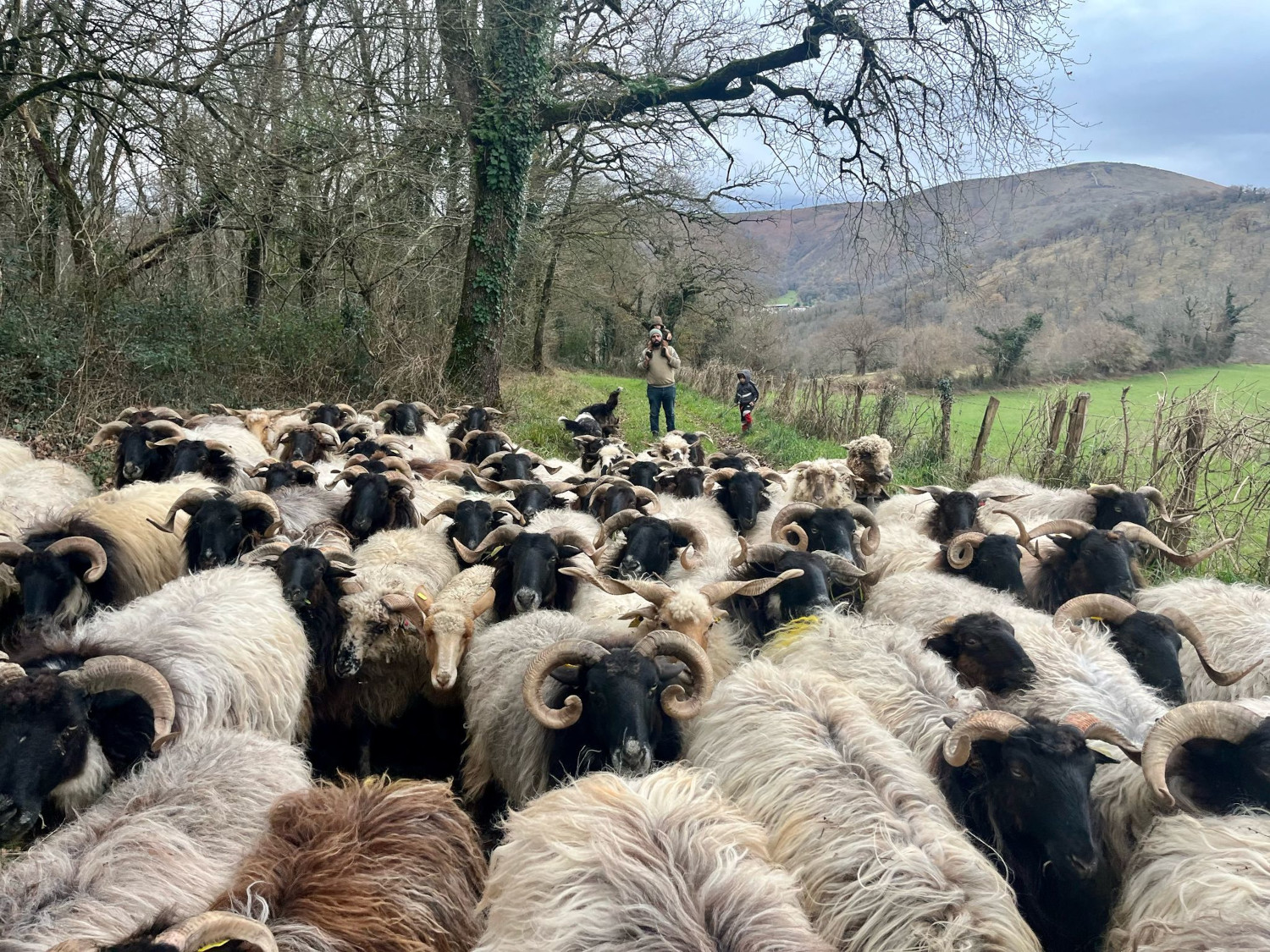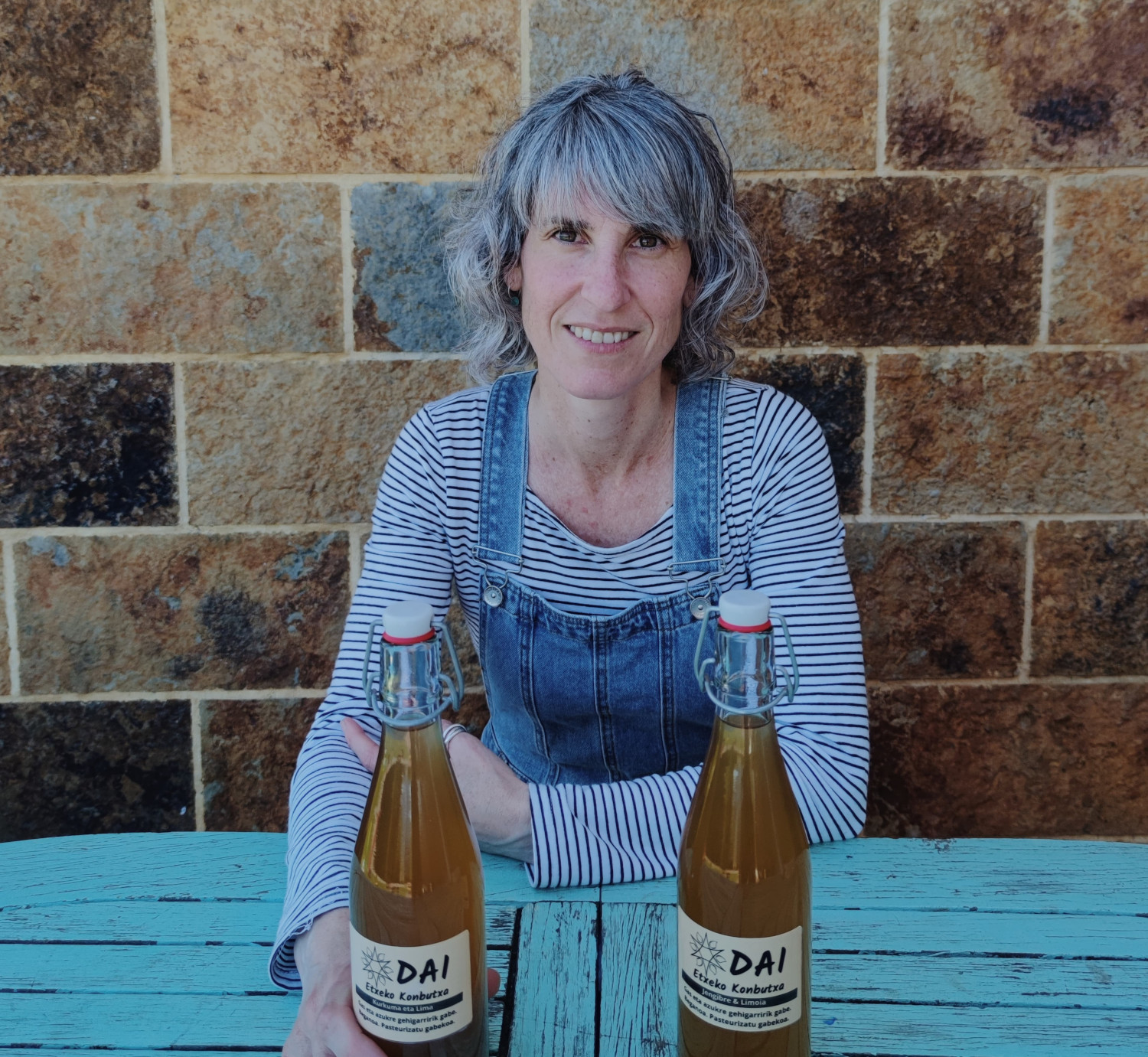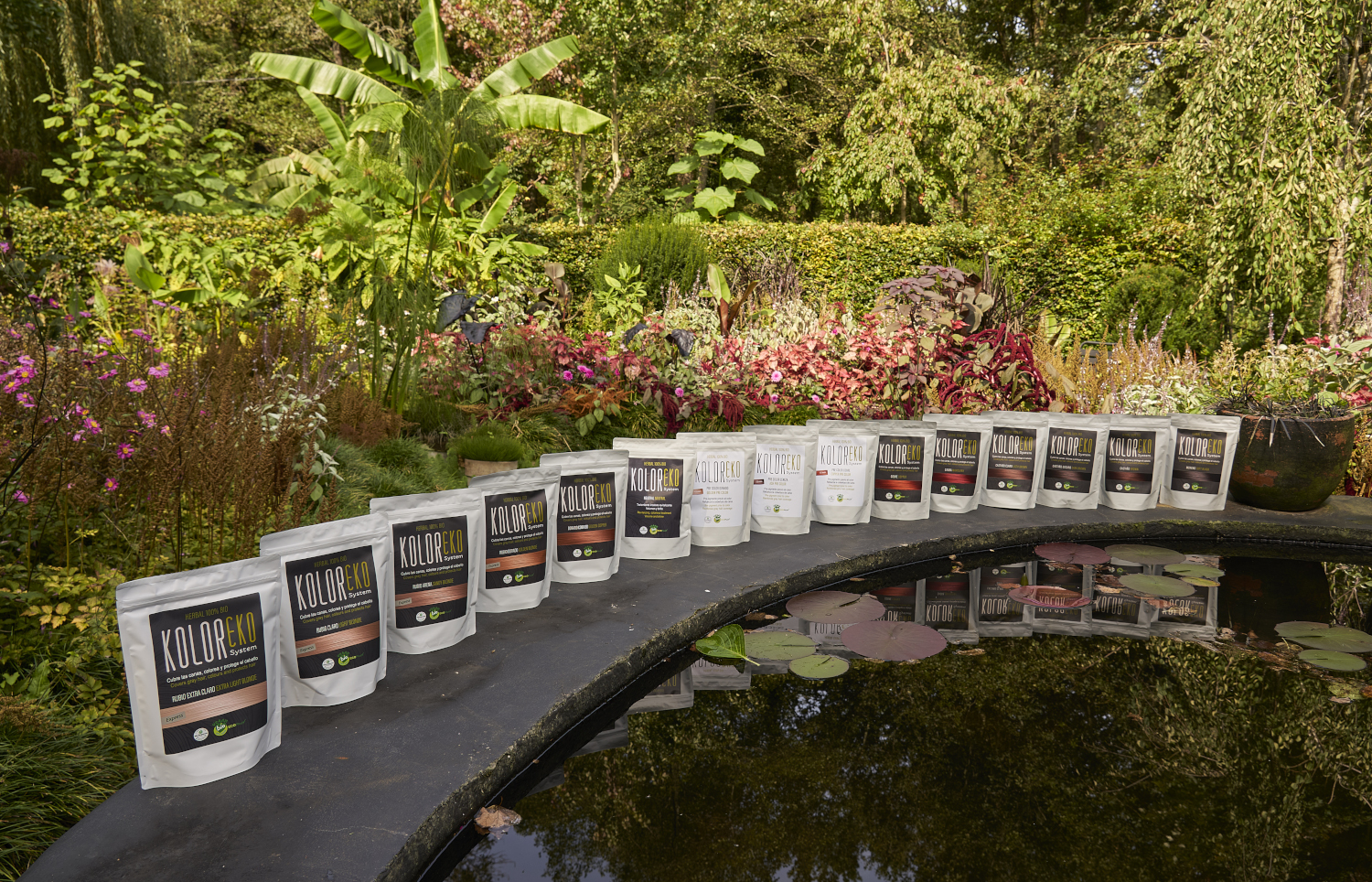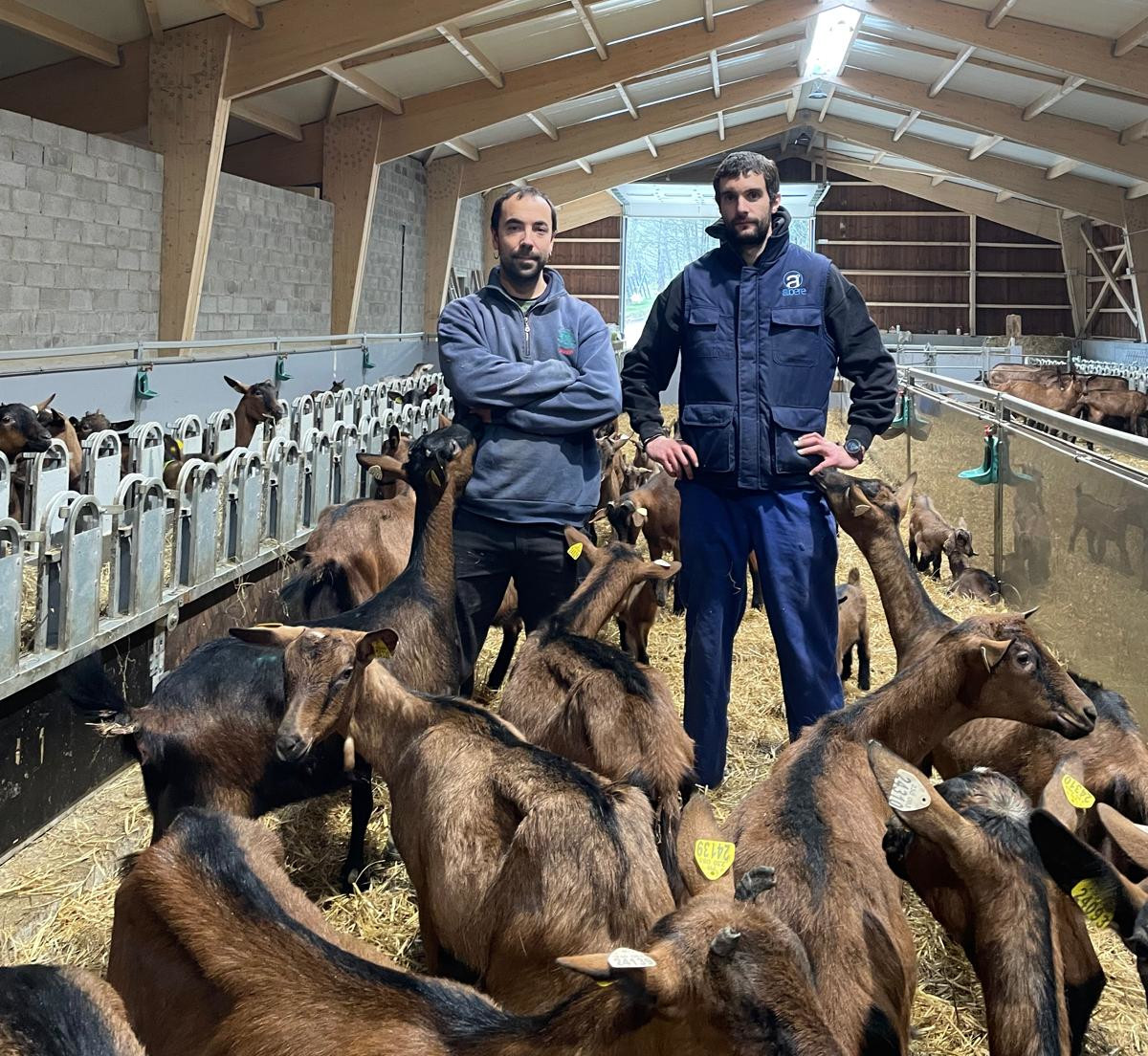Place of collection and dissemination of the seeds of the village Itsasun
- The Association of the Earth of Tomorrow (BLE) of the Northern Basque Country has been working for years on cultivated biodiversity. “We have several projects underway, one of which revolves around the seeds of the garden,” explains Nico Mendiboure, a member of the Seed Network. Some members of the group started working on the seed issue about four years ago and created the network two years ago. “We are collecting seeds from here, and the idea is to disseminate them to the public and make them aware of what the seeds of the village are, how they are used, their importance in planted biodiversity...”, he said.

Native varieties or those adapted to local conditions are referred to as "local seeds" or "farm seeds". “Multivariate are lost, there is widespread mention of an 80% loss of cultivated biodiversity. Here we don’t have an exact count, but in the orchards we see that we have really lost the culture of seeds,” Mendiboure points out. Red Semillas works with the goal of recovering what is lost step by step throughout the Northern Basque Country. The first steps towards a large seed bank in the future are being taken. For the moment, they say, the bank is a “small cupboard”, but the goal is to gradually collect more seeds and join more seed keepers to the initiative.
The network also highlights its relationship with seed return initiatives in the South, such as the Aleka association or the Seed Networks. “We try to relate to them, we still have a short path and we need time, but we have the mission to connect with the South,” he explains. Proof of this relationship, the projects and growers who will participate from the Basque Country North and South in the second Seed Fair that will be held on February 16 in Itsasun.
The Seed Fair
Last year, the network organized the first successful Seed Fair. “He was very optimistic for us, we had the conference in the morning, and a lot of people came there too,” says Mendiboure. The public is aware that there is an interest in the topic of native seeds, and the Seed Fair will be an excellent opportunity to deepen it. The meeting will take place on February 16, in the Sanoki room of the Marina, from 10:00 a.m. to 5:00 p.m. Among them, there will be workshops for both children and adults, seed exchange, producer and farmer stalls, food and drink... everything. “Our intention is to hold this fair every year and invite people to participate. Whether you’re a grower or not, who can grow the seeds, it’s a time to exchange them,” he recalls.
Duela lau urte abiatu zuten Azpeitian Enkarguk proiektua, Udalaren, Urkome Landa Garapen Elkartearen eta Azpeitiako eta Gipuzkoako merkatari txikien elkarteen artean. “Orain proiektua bigarren fasera eraman dugu, eta Azkoitian sortu dugu antzeko egitasmoa, bere izenarekin:... [+]
Donostiako Amara auzoko Izko ileapaindegi ekologikoak 40 urte bete berri ditu. Familia-enpresa txikia da, eta hasieratik izan zuten sortzaileek ile-apainketan erabiltzen ziren produktuekiko kezka. “Erabiltzaileen azalarentzat oso bortzitzak dira produktu gehienak, baina... [+]
Ubidekoak (Bizkaia) dira Imanol Iturriotz eta Aritz Bengoa gazteak. “Lagunak gara txikitatik, eta beti izan dugu buruan abeltzaintza proiektu bat martxan jartzeko ideia”, azaldu du Iturriotzek. Nekazaritzari lotutako ikasketak izan ez arren, baserri munduarekin eta... [+]
Iruñean bizi ziren Iñaki Zoko Lamarka eta Andoni Arizkuren Eseberri gazteak, baina familiaren herriarekin, Otsagabiarekin, lotura estua zuten biek betidanik. “Lehen, asteburuetan eta udan etortzen ginen eta duela urte batzuk bizitzera etorri ginen”, dio... [+]
Gipuzkoako hamaika txokotatik gerturatutako hamarka lagun elkartu ziren otsailaren 23an Amillubiko lehen auzo(p)lanera. Biolur elkarteak bultzatutako proiektu kolektiboa da Amillubi, agroekologian sakontzeko eta Gipuzkoako etorkizuneko elikadura erronkei heltzeko asmoz Zestoako... [+]
Emakume bakoitzaren errelatotik abiatuta, lurrari eta elikadurari buruzko jakituria kolektibizatu eta sukaldeko iruditegia irauli nahi ditu Ziminttere proiektuak, mahai baten bueltan, sukaldean bertan eta elikagaiak eskutan darabiltzaten bitartean.





















